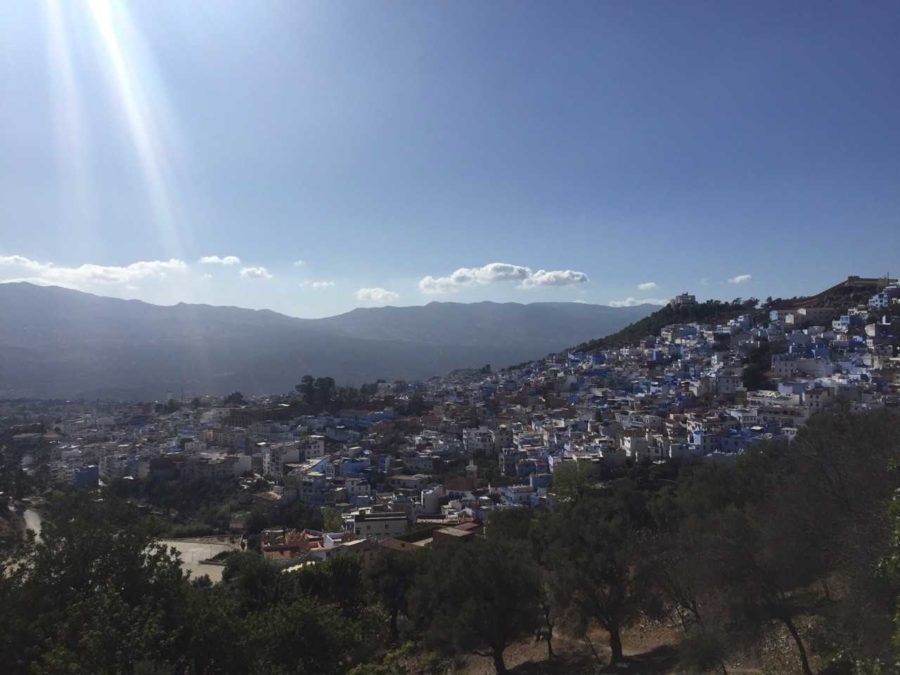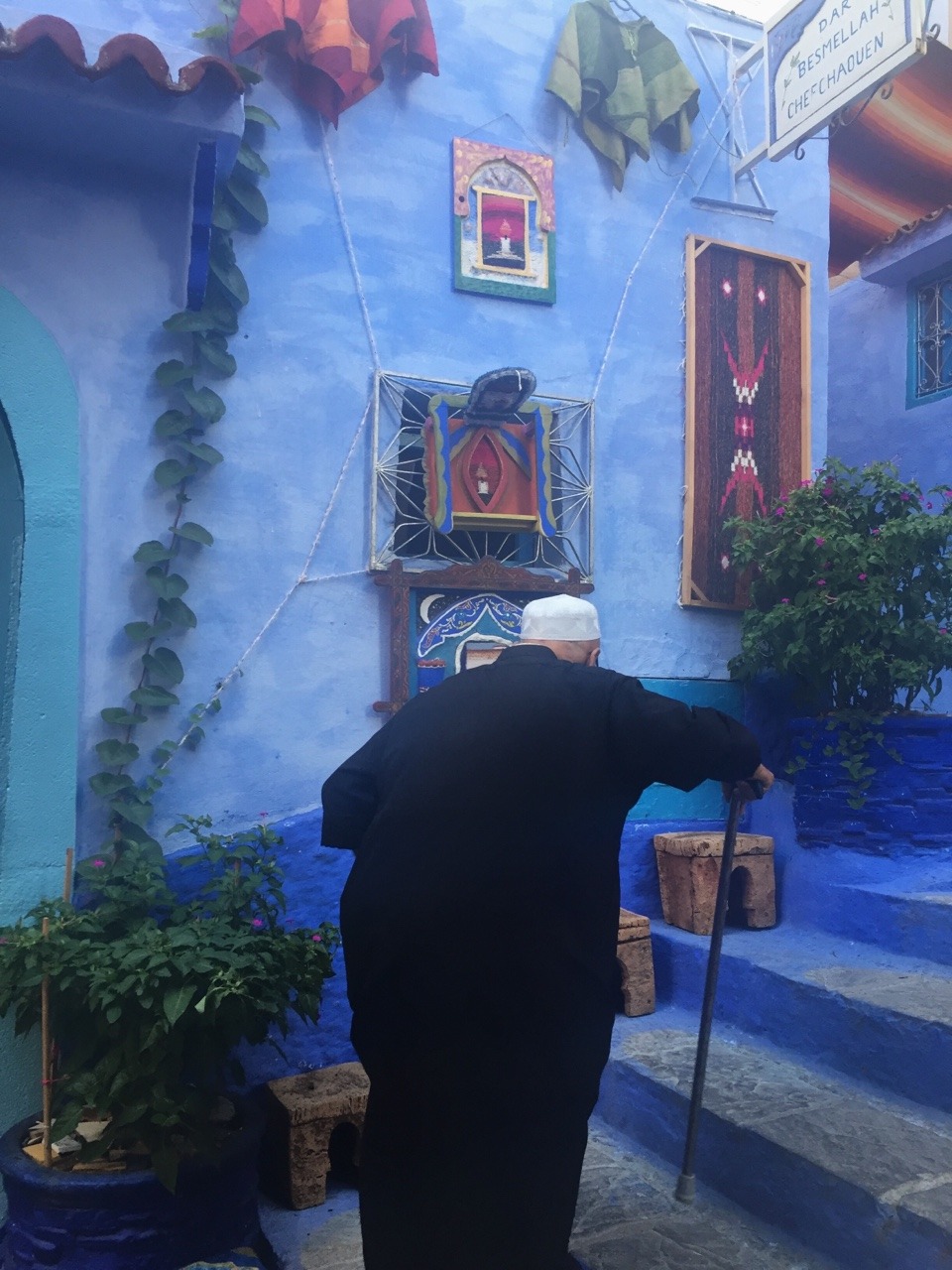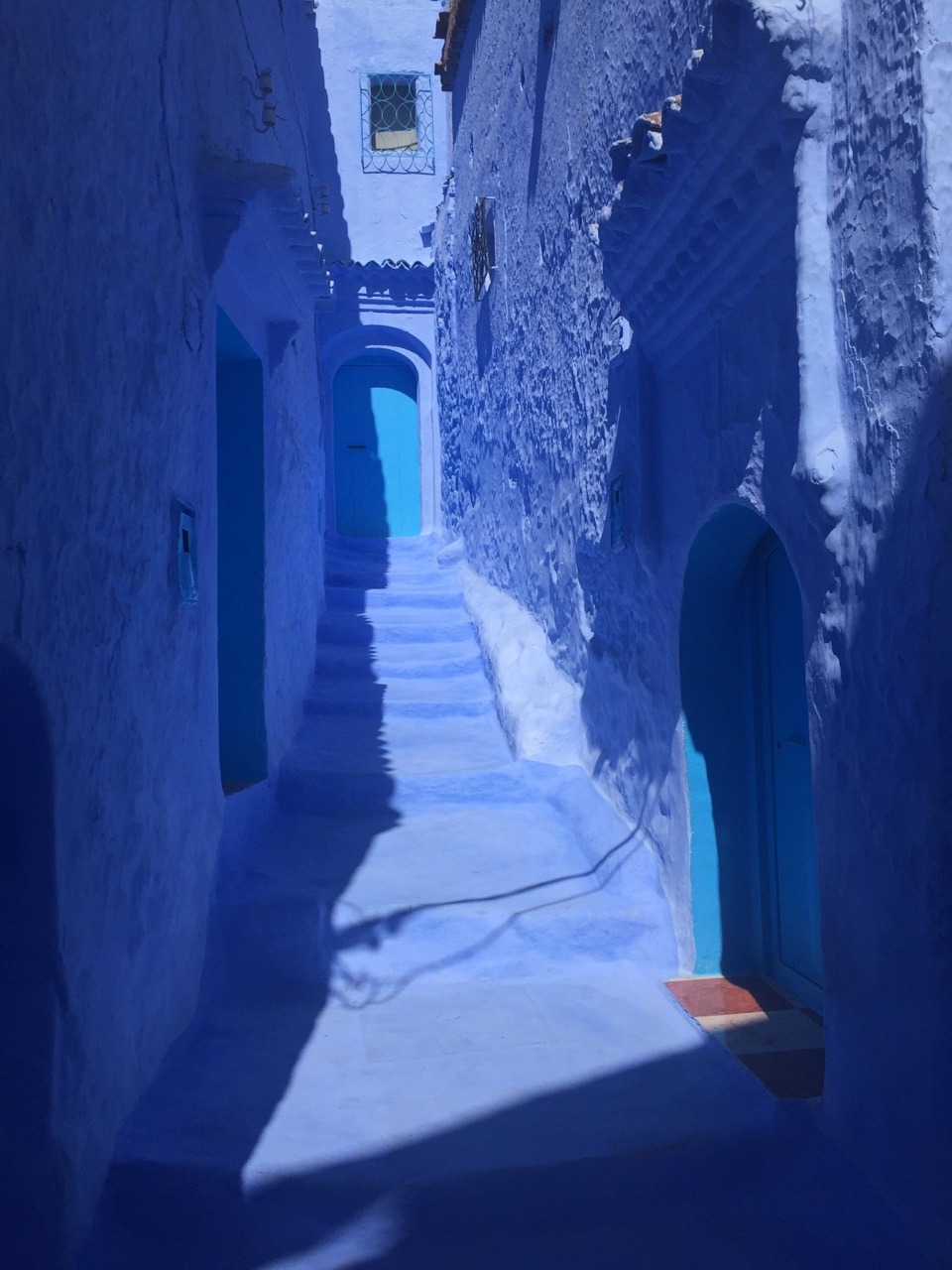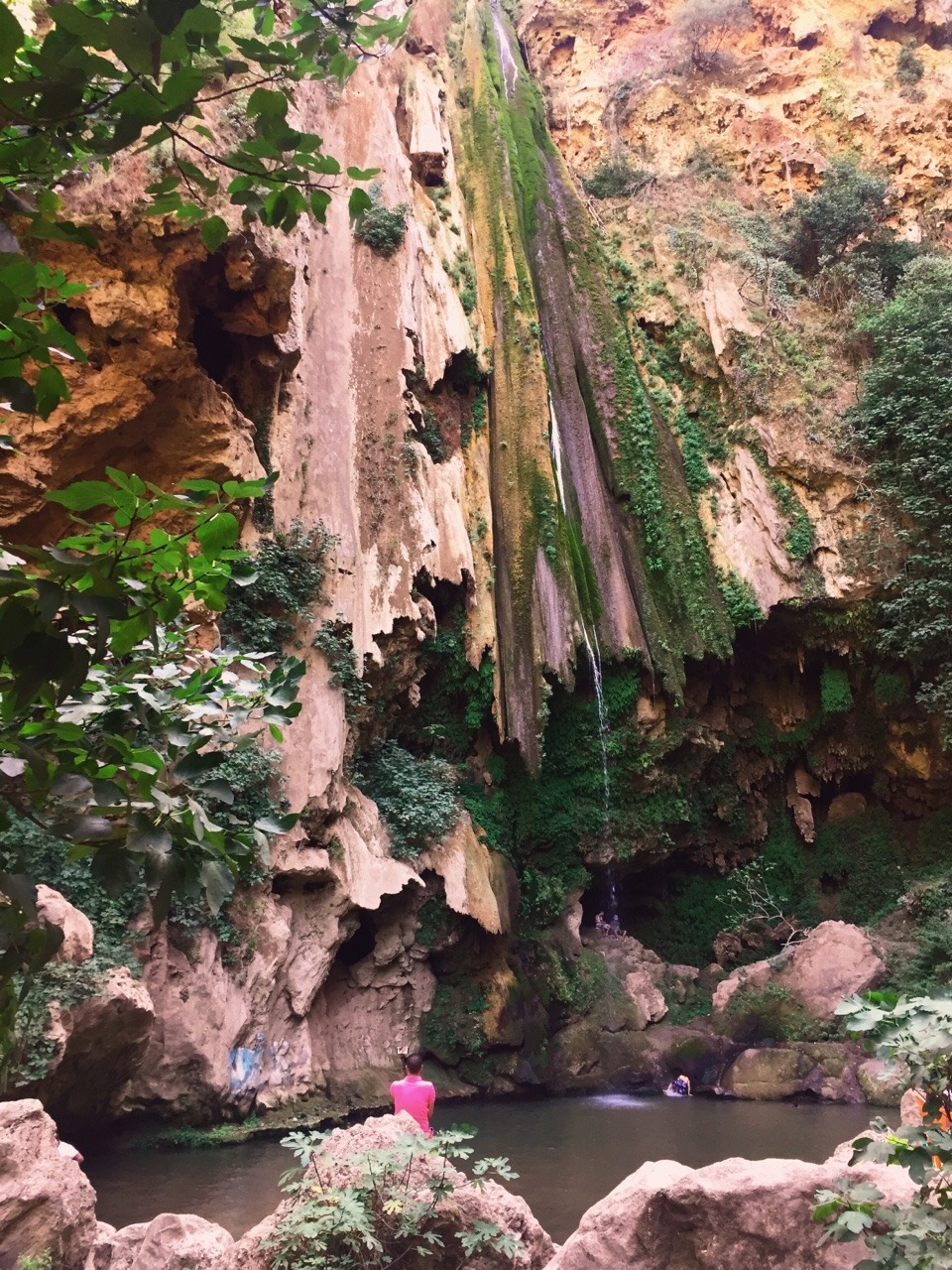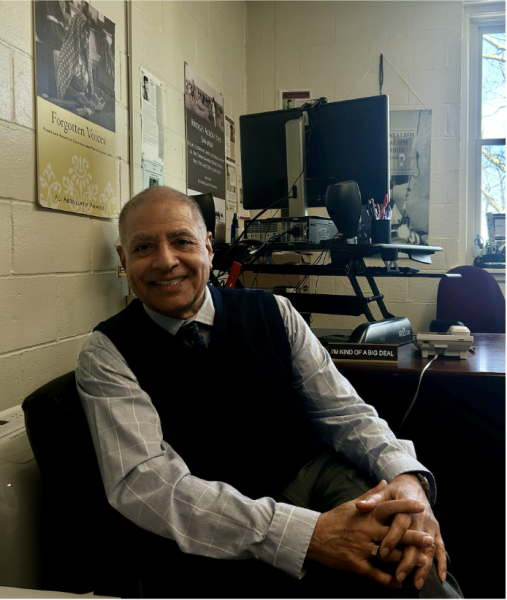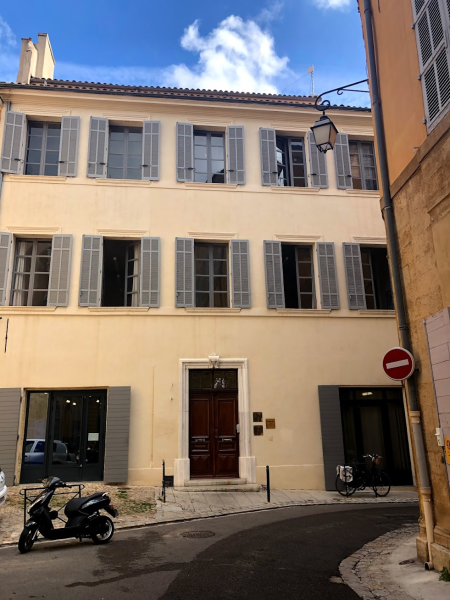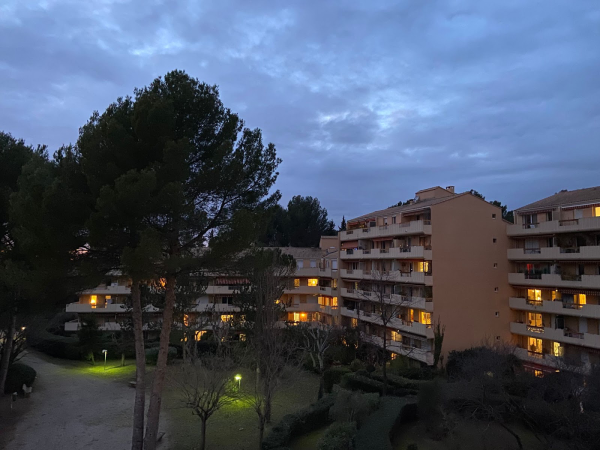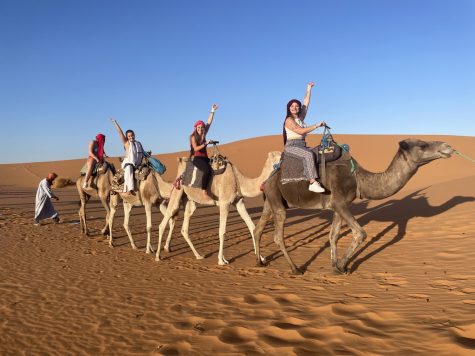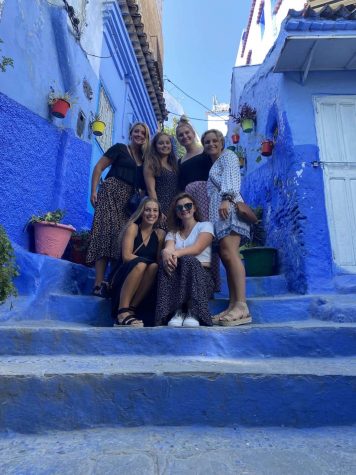Cracking Open Chefchaouen
Forty-two tired Americans stumbled out of the tiny buses, slightly nauseous from the constant swerving up the mountainside road. As with our much shorter ride to Tetouan, mostly mountains and farmland surrounded us once we left our safe haven called Tangier. I sat there, music blocking out the chatter around me, and wondered how different it would be. I had grown comfortable and use to the crazy and mixed culture that the city proudly carried, but this was different. No more familiar stone streets or bustling city life. I was entering the small village that was somehow it’s own little world; the legendary “Blue Pearl”, Chefchaouen.
The first thing I did was meet my host sister Nada, a short twenty-three-year-old with a quiet voice and loud smile. She hugged us each one by one as we exited the room and explained that she lived right outside the Medina, but that it wouldn’t be a long walk. As we headed into the heart of the village, more blue buildings began to appear became more and more frequent until I was drowning in a sea of dyed pisé. Even the small white mosque we passed had delicate sapphire details spiraling up it’s tower. I heard someone yelling though one of the windows and tensed up. Walking over to it with a smile, Nada explained it was her grandparent’s home and that, even though he did not speak English, her grandfather wanted to welcome us to his hometown. He continued to wish us well in a mix of Arabic and French. Nada laughed and sent us on our way.
Our home was only a few houses up. I practically ran to the bed closest to the window. I knew the view had to be amazing from my fourth-floor apartment. I was surprised when I saw was a small old woman waving to us from the house we had stopped in front of. Nada’s grandmother had heard we were here and walked out to greet us, even from afar. She waved to us cheerfully, her bright red hijab contrasting the pastel blue of her home. One of the first things you learn in Morocco is how hospitable and excited everyone is that you want to be there.
Nada’s younger sister suddenly appeared from the stairs carrying a giant silver platter. Under the cover was the most couscous I had ever seen. On the holy day, Friday, every Moroccan family eats this meal. The plate was dressed with carrots, potatoes, and sweet onions with raisins. Little did we know, everyone eats of the center platter with no plates. Hesitantly, we each took our first bites of the sweet mix. It was strange, sharing from one plate, but we quickly grew use to it. The five of us bonded over things we loved, talked about cultural differences, and told funny stories about our life in Tangier up until then. It was a reminder that people here aren’t so different after all. Afterwards, we took a stroll through the medina, admiring the cyan and teal walls, and took a small hike to an old mosque. Settling in for dinner, bowls of harira (my favorite) set out. However, my mind was on the next day’s hike.
The sun shined through the trees around me. Closing my eyes briefly, I took in the quiet and a breath of mountain air like I’d get at home. As much as I swear I’m not a morning person, I think I could become one in Chaouen. From the base of the range in Akchour, we could see what lied ahead for us. Mountains, higher than I expected, peaked over one another almost as if they were looking down at their next challengers. All I knew as I began my hike was that we would cross three small ones, six miles up to the waterfall, all in the hot Moroccan sun. As I climbed up another set of makeshift stairs, I imagined the first people of Chaouen and the generations after them who hiked miles and miles through these very mountains. Farms and streams of the clearest water I have ever seen flanked us until the rivers began to pool and the trees became more dense and, I figured we were getting close.
At the top, the group I was with was greeted by some friends who had already made it up. “Don’t even think about it,” one shivering girl said, “if you don’t jump you won’t make it in, its too cold.” I made my way up the slippery rocks and down to directly under the falling water. Friends jumped in around me, but I couldn’t make my feet move. Nervousness bubbled up inside me until I finally took the plunge. I didn’t feel anything except my limbs kicking to pull me back to wherever I was before. My body seized up and my brain struggled to process what the hell I was doing. Then, out of nowhere, I was sucked back into reality. I opened my mouth to speak, but I couldn’t. I had never been so cold that I physically couldn’t talk, but I was now. I pulled myself together at the sound of my friends clapping, and hauled myself to a rock on the edge. I sat in there for a few minutes, happy with my decision, but pulled myself out ready to go back down.
After dinner with friends, full and still sore from the twelve mile hike, we ventured out to the medina. Blue buildings full of paintings, flowy pants, and small trinkets lines the narrow alleyways. We stopped every so often to browse or make a purchase before coming across the infamous “soap store” we kept hearing about. The smell was the first thing that hit me when we stepped in. Citrus, rose, musk, lavender, you name it, it was there. Up the brick staircase, we were greeted by hundreds of bundles of soaps hanging from the ceiling. There were tables full of the same, an assortment of colorful jars lining the shelves, and bottles of oil and makeup around the corner. La Botica de la Abuela Aladdin is a must see, it’s basically the original Lush. Just don’t forget to barter in the medina!
Feeling satisfied with our purchases for the weekend, we walked across the street to the Aladdin Cafe. Five floors up in this hidden gem was a rooftop terrace where at least fifteen of our friends had sat to enjoy the night. The smell of tobacco was strong, and loud music from a pageant in the Kasbah below us echoed around us. Tiny lights flickered from window to window in the homes scaling up the mountainside. We laughed as our host brothers and sisters taught us words in Arabic that you wouldn’t get in the classroom and joked about our experiences so far. I had lived in what felt like a palace, in a city millions travel to see, surrounded by landscapes that put pieces in the Louvre to shame, but it was what I experienced in all these places that was truly beautiful. Nada’s grandmother, the exchange of cultural practices, taking in the atmosphere, conquering fears, finding a second family, and so on. This was a city built on peace and unity in a time of trouble, and for the most part, it’s stayed that way. These things I’ve learned and experienced are more beautiful than pictures of potted plants along blue alleyways or endless mountain ranges topped with waterfalls. Chaouen reminded me that I need to appreciate the little things more and be present, and so I will in my future travels.



